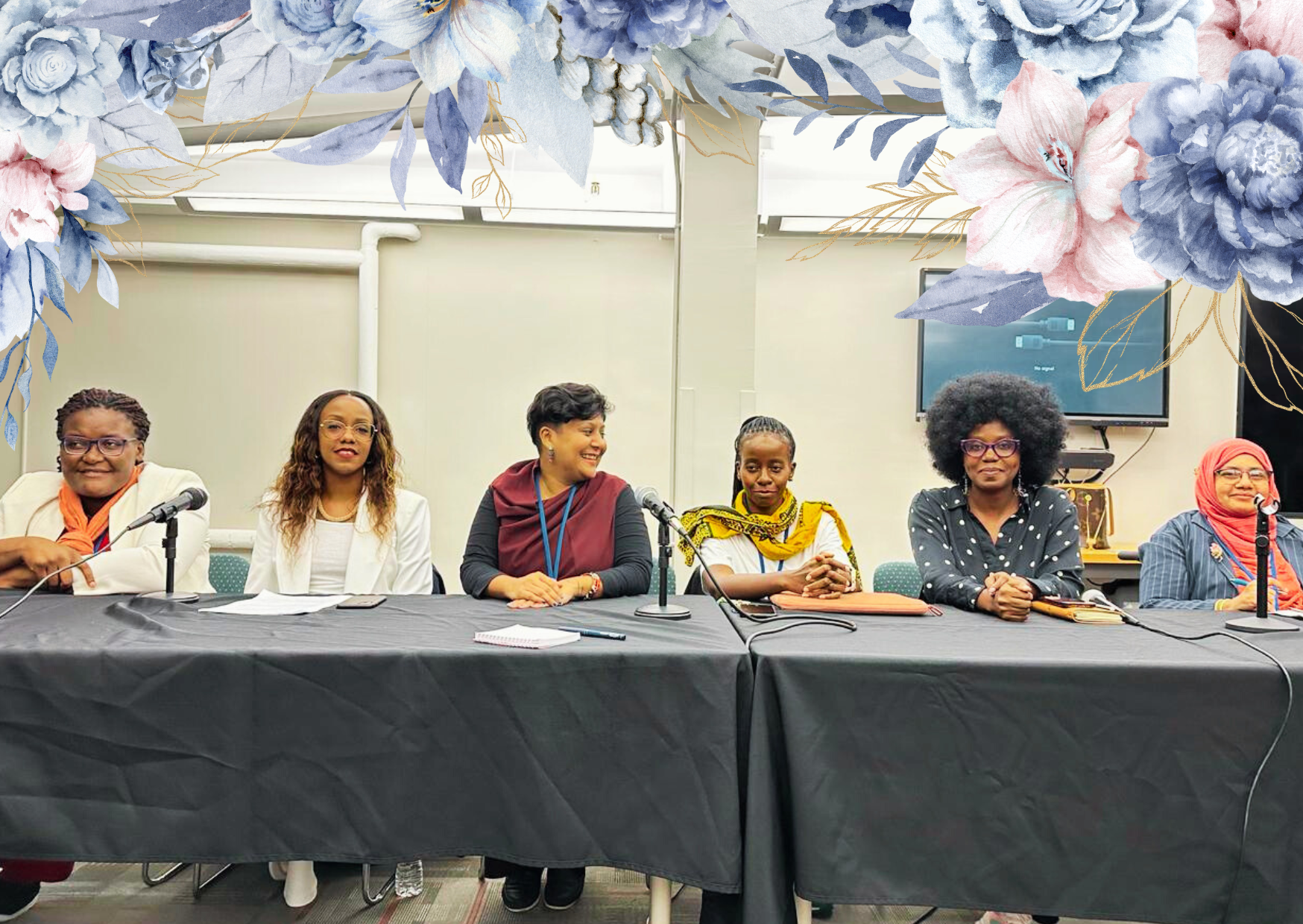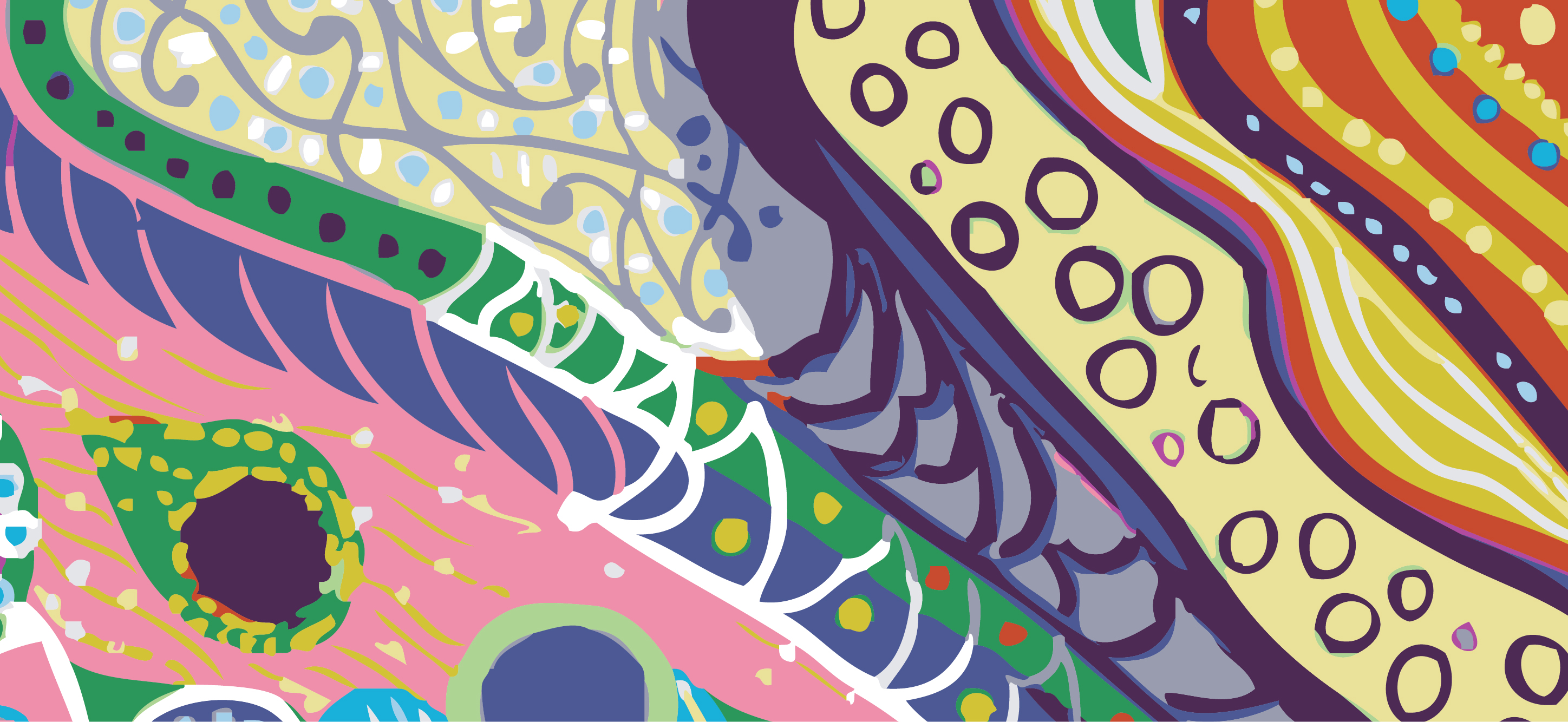
L-R: Mildred Omino (Kenya Network of Women With Disabilities, Kenya); Diana Njuguna (Akili Dada, Kenya); Mageda Esolyo (CREA, Kenya); Tasaffy Madani Hossain (Bonhishikha, Bangladesh); Penelope Sanyu (Femme Forte, Uganda); Ashrafun Nahar Misti (Women With Disabilities Development Foundation, Bangladesh).
IWRAW Asia Pacific has been a consortium member of the Women Gaining Ground (WGG) project in partnership with CREA and Akili Dada since 2021. WGG, as a Global South initiative, focuses on addressing gender-based violence (GBV) and increasing the leadership of young women and women with disabilities (WWDs). Apart from aspirations to contribute to global advocacy and movement-building, the project is currently implemented by in-country partners in Bangladesh, India, Kenya, Uganda, and Rwanda.
WGG is starting a new monthly blog series as a space to think aloud and share our collective learning and questions with the larger movement.
In this first blog post of this series, Tasaffy Madani Hossain (founder-coordinator, Bonhishikha) and Ashrafun Nahar Misti (executive director, Women with Disabilities Development Foundation), from Bangladesh, share their experiences of attending and participating at CSW68.
———————————————————————————————————
WGG organised a parallel event to CSW68, titled ‘Disability justice, youth leadership, and systemic structural gender-based violence: Consequences and Counter-narratives from the Global South’. The event focused on the priority theme of CSW ‘Accelerating the achievement of gender equality and the empowerment of all women and girls by addressing poverty and strengthening institutions and financing with a gender perspective.’
There were a few overarching issues that came up during the sessions in the 68th session of CSW earlier this year. Among them, the importance of integration of voices from youth and disability was noted often. Discussions aimed to highlight how often decision-making spaces, such as the UN’s reporting spaces, were highly inaccessible to both these groups – and this lack of visibility was also noticeable in this year’s sessions. It can be overwhelming and daunting if one is new and unaccustomed to these spaces.
During the WGG panel at the parallel event, when discussing issues affecting young women’s lives in Bangladesh, we spoke about how the agency of young women is often not taken into account. Socially, women are usually expected to have ‘guardians’. There is a common expression in Bangladesh that states that women move homes during their lifetime – from their father’s home to their husband’s home and eventually to their son’s home – indicating that women do not have the right to their own homes. Thus, it is assumed that women, especially young women, always need to live with a guardian or a caretaker. This presumption becomes even stronger when we consider women with disabilities: due to inaccessible homes, WWDs are never expected to have the capacity or agency to live on their own. This leads to an overall social constraint, where young women, regardless of their reason for looking for homes, are unable to find rentals – and for anyone with minoritised identities, such as Indigenous, transgender, from marginalised ethnicities, or with a disability, the compounded barriers often have the result that they cannot move to different cities, or make life choices that provide them with their own agency.
The issue of the guardians provides an example of the lack of agency and decision-making capacity that young women and women with disabilities have to challenge continuously when making their life decisions. Even when young women break free of these barriers, the social prejudice and potential to face harassment often lead them to hide these aspects of their personal lives.
Economic rights are a key structural issue common to young women, WWDs, and women from marginalised communities. The lack of access to resources – be it equal inheritance, land rights, or control over one’s finances – affects all women and hinders them from accessing opportunities and decision-making power. Thus, issues relevant to young women and WWDs should be considered across movements, and collaborative advocacy is required to bring change to these systems that remain in place.
When it comes to broader CSW engagement, only a few sessions at CSW68 were seen to be raising and tackling issues related to youth engagement and challenges faced by WWDs. Unless youth and disability are part of the central topic, their concerns do not get the space and attention they need. Yet somehow we are talking about intersectionality!
Accessibility remains an issue in the CSW68. Many of the locations where sessions are held are not easily accessible, despite requests from organisers. Often the sessions take place in separate spaces far from one another, which means that distance and travel time for WWDs should have been taken into consideration. Unless we can ensure accessibility and reasonable accommodation at all levels, inclusivity remains just a buzzword.
As Bangladeshi nationals, getting a timely appointment for a US visa followed by a long wait for visa approval is often an anxiety-driven, difficult and expensive process. Visa approvals are harder to obtain for young unmarried women and WWDs. While the WGG panel was diverse, our WGG colleagues from India were not able to join us in New York because the only appointment slots available were six months away!
Despite these challenges, the biggest highlight of CSW had to be the first morning, of walking into the lobby of the hotel, to be greeted by the sight of so many women in one place, the aura of confidence and passion could be felt in the air. That feeling remained throughout the week, of walking around that part of NYC and just seeing groups of women engrossed in a discussion around gender rights.
Many discussions were so relevant to our work, political context, and broader global issues that feminists are all dealing with. There was the feeling of connection and hope that there are still so many of us challenging and keeping at it. We wanted to hold on to that feeling and bring it back home. CSW 2024 also had a young group of locally based activists – Community Care Collective – who organised self-care sessions, and Tasaffy signed up for a session. It was a beautiful way to ground ourselves and settle into these big overwhelming feelings of the week.
One of us, Tasaffy, was a first-timer at CSW, while Misti has been attending CSW for a few years now. As a first-timer, it can be overwhelming, given the number of interesting sessions that are going on. So, even though you may want to be everywhere, all the time, a helpful tip from the more experienced people is to choose only 3 to 4 things to take on in a day. Above everything else, it is okay to just pause and take a rest, while allowing yourself the time to settle in, spending some time just walking around the locality, visiting the venues, and just taking peeks into different rooms helps to orient and feel comfortable with what is going on, and what we can be doing while there.
———————————————————————————————————
Tasaffy Madani Hossain is one of the founders of Bonhishikha – unlearn gender. Bonhishikha is a feminist organisation based in Bangladesh that is committed to promoting gender equality and ending gender-based parity in our world.
Misti Ashrafun Nahar is a founder and Executive Director of the Women with Disabilities Development Foundation (WDDF) in Bangladesh. WDDF is a disability rights organisation based in Bangladesh that is aimed at securing the rights and welfare of women with disabilities.

